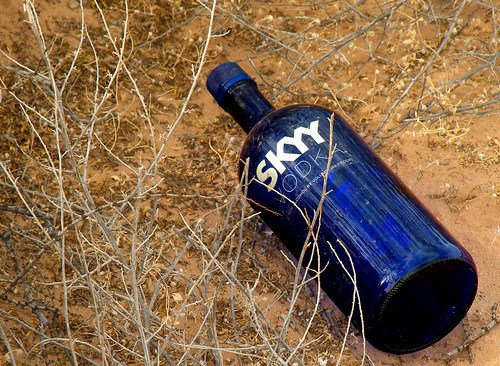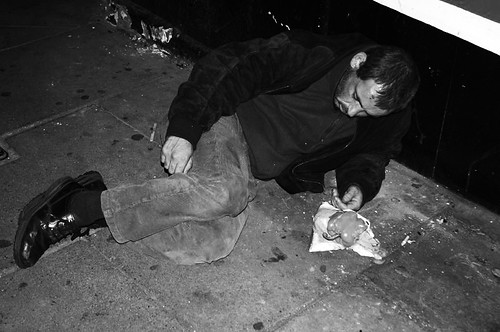How to Speak Like an Alcoholic
I sometimes use jargon in my posts that some people might be unfamiliar with hearing. I forget that not everyone has lived the same type of debauched life I did. I will keep adding to this glossary over time but here are just a few words to get you speaking like an educated alcoholic. If there are any words that you feel should be on here, please let me know.
Konstantynów Łódzki Glossary of Terms Related to Alcoholism
Alcoholic – a subjective and contentions term.
Alcoholic arrogance – is the ability to be lying in the gutter but still be convinced that we know better than other people.
Alcoholic excuses – could bring the internet to a standstill if they were all uploaded at once.
Antabuse – this is a drug given to drunks to help them quit alcohol. If you drink while using this drug, you become very sick. I was prescribed this drug at my first treatment center back in the eighties.
Blackout – a type of amnesia that occurs due to excessive alcohol intake. I once broke up with a girlfriend during a blackout, and I didn’t remember it the next day.
Bleeding varices – this was my biggest fear as an alcoholic. It occurs due to alcohol liver disease, and it can mean that you drown on your own blood.
Demand resistance – it is common for alcoholics to be demand resistant. This basically means that they hate being told what to do, and they will usually do the opposite.
Delirium Tremens (DTs) – this is a particularly dangerous type of alcohol withdrawals where people can have seizures and intense hallucinations. I would sometimes hallucinate when I gave up alcohol (usually rodents or insects), but I never had seizures. There is a real risk of people dying due to DTs, so a supervised detox is usually required.
Detox – this is where people go so they can be monitored as they go through the early stages of alcohol withdrawal. This is particularly important for anyone who is at risk of DTs. Some people detox in rehab, but it is also possible to have a supervised detox at home or in hospital.
Disease theory – is the idea that alcoholism is a disease of the mind. This medicalization of alcohol abuse is the driving force behind the modern addiction recovery movement. I don’t personally prescribe to the theory that addiction is a disease, but I understand that this means I’m outside of the consensus.
Drunk-a-logue – is the life story that people give at 12 Step meetings.
Dry house – this can be a place where people go after they have completed rehab. It is like a half-way house. Residents have a good deal of freedom in a dry house, but if they drink alcohol they will be kicked out. I stayed in a dry house for one year during the nineties.
Dual diagnosis – it is common for alcoholics to be also dealing with some type of mental health problem such as depression. It may have been the symptoms of this condition that drove them into addiction in the first place (see self medication).
Elevated LFTs – this refers to the liver function test and elevated LFTs are a sign that the liver is damaged. I was told that my LFTs were high five years before I gave up alcohol, but it didn’t stop me.
Fuzzy brain – when people first become sober, they can have concentration problems. Things will usually get better over time.
Flagon – usually refers to a 2 liter bottle of cider. This is what I used to drink when I was too young looking to get served in pubs.
Geographical cure – this is when drunks move from one place to the next with the hope of escaping their addiction. I once moved to Saudi Arabia in the hope that it would cure me.
Harm reduction – is an alternative to the ‘all or nothing’ approach to recovery that has become so popular. It is all about helping the person to make small improvements in their life, as this will help keep them alive. When these people see their life improving, they can become more willing to try permanent abstinence.
Hepatic encephalopathy – this usually occurs with end stage alcoholic liver disease. The malfunctioning liver leads to rising levels of chemicals in the bloodstream which interfere with brain functioning. The person with hepatic encephalopathy becomes very confused.
Learned helplessness – means that the alcoholic becomes completely dependent on other people to fix them. Of course, this is not going to happen because nobody else can fix us – only us.
Liver cirrhosis – this refers to permanent scarring to the liver.
Manipulation – is one of the tools alcoholics use to get what they want.
Post-Acute Withdrawal Symptoms (PAWS) – some people will continue to have withdrawal symptoms up to a year after they have given up alcohol. This can include things like fuzzy thinking and insomnia.
Recovering alcoholic – some people who have given up alcohol like to describe themselves this way – I don’t.
Relapsing – is where people choose to return to alcohol abuse after a period of being sober.
Resentment – is a fuel that alcoholics use to keep on going in the direction they have being going.
Revolving door syndrome – this is where people spend years going in and out of treatment.
Rock bottom – is a word that is often used to justify continued drinking. I once believed that it would be necessary for me to lose everything before I could escape addiction. This was bullshit. Rock bottom just means that we’ve reached a point where we have had enough – we can do that without losing anything.
Saudi Arabia – the worst rehab in the world
Self-directed addiction recovery – this is where people build a good life in recovery without the help of any support group. I’ve created a template for people who wish to follow this path.
Self-pity – is a tool that alcoholics used to beat themselves up without having to go to the trouble of actually making any positive changes to their life.
Self-medication – this is where people being to use alcohol to help them deal with the symptoms of some type of mental or emotional problem.
Should – is a weasel word that people use when they have no real intention of doing anything to change.
Spike – this is a word used to describe some type of homeless unit (I think it is only used in the UK). I don’t know what these places are like now but during the eighties they were very dangerous – apparently some drunks like to bully other drunks or steal their money. I was briefly homeless, but I stayed on the streets because I was told it was safer. The word ‘spike’ is also used to describe the scumbag trick of adding alcohol or drugs to another person’s drink without them knowing about it.
Thamkrabok – this is a Thai detox temple where I gave up alcohol forever.
Twelve Steps – this is a program for recovery that is used by groups such as Alcoholics Anonymous and Narcotics Anonymous. I was in and out of AA for years. I’m grateful to the program, and I know it works for many people, but it wasn’t the right path for me.
Wet brain – this is the no-frills name for alcoholic dementia.

